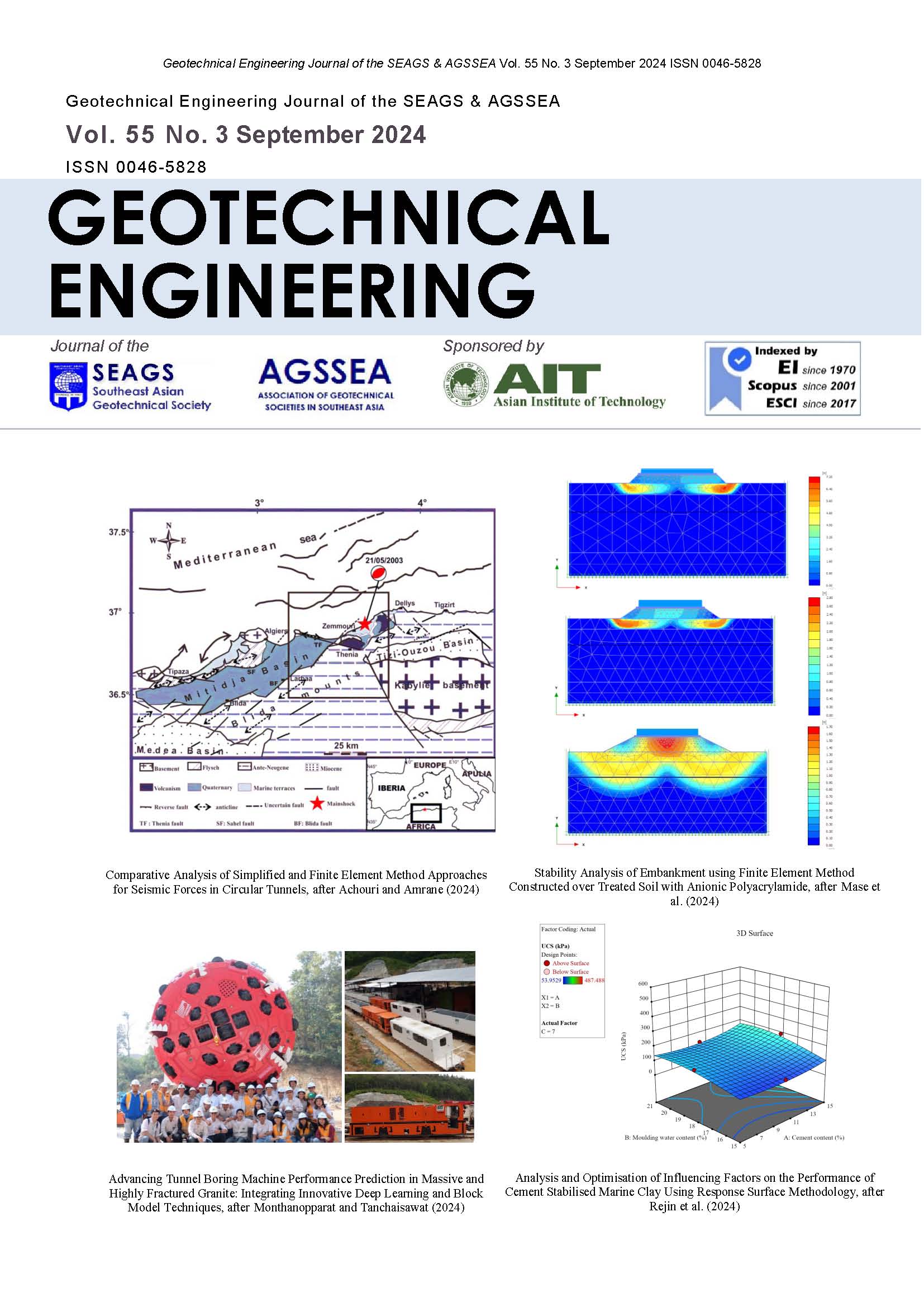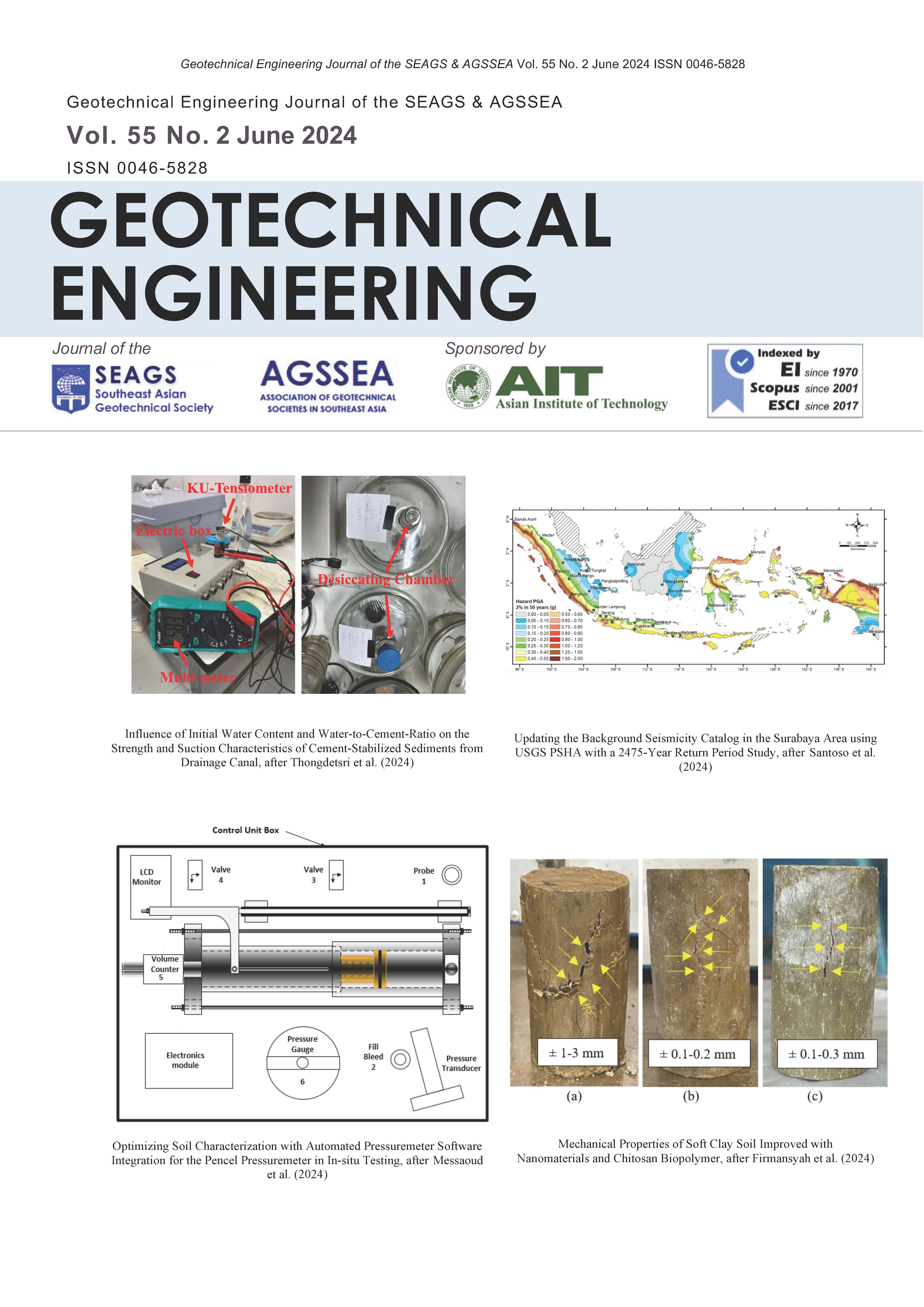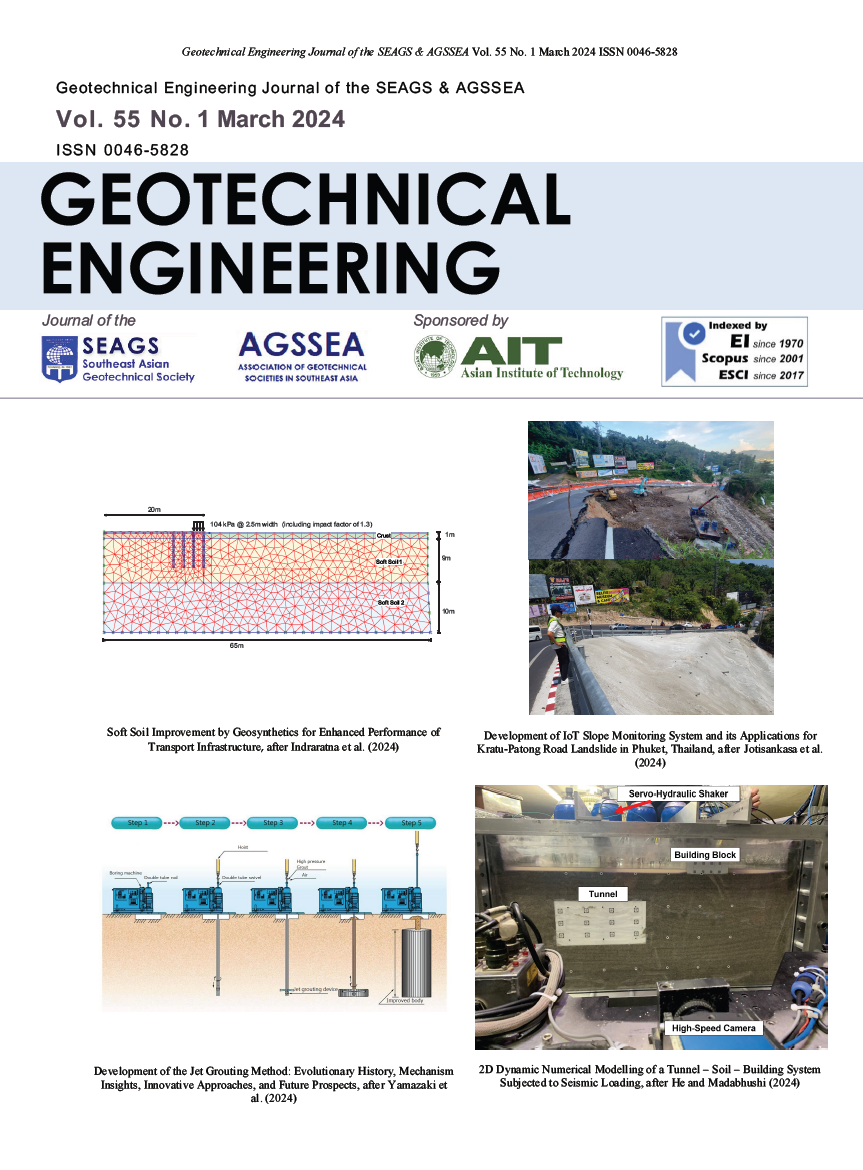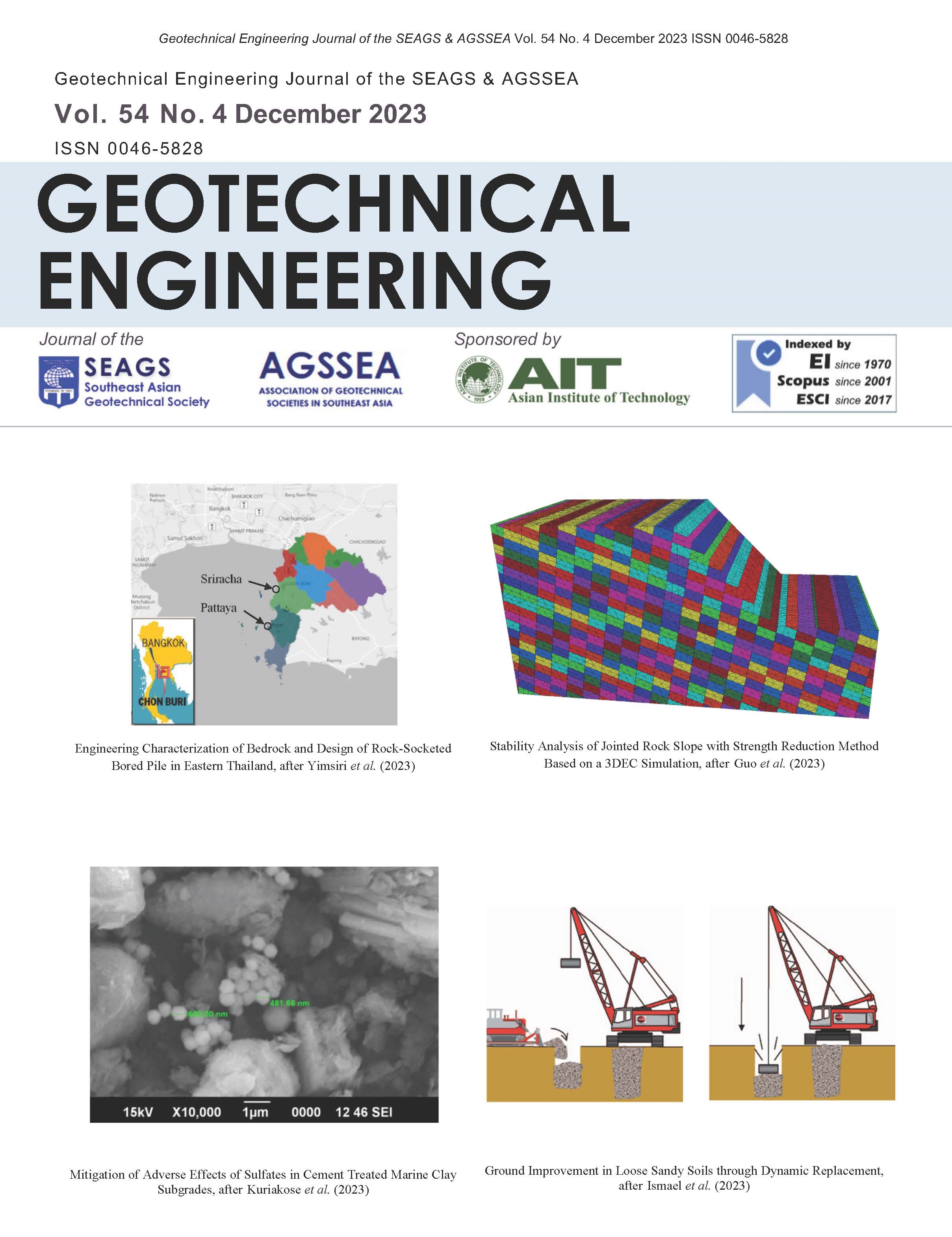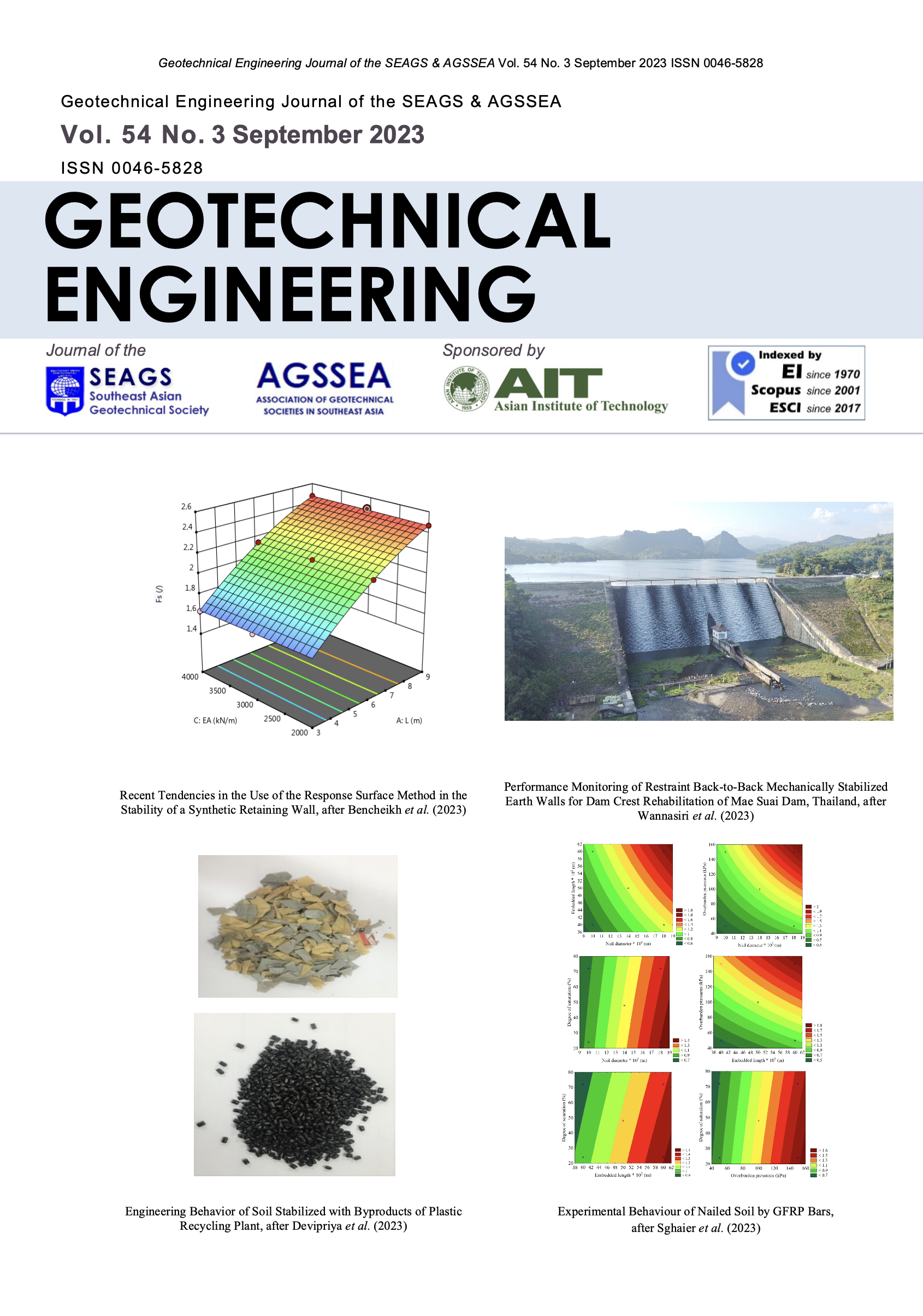Geotechnical Engineering Journal of the SEAGS & AGSSEA ISSN 0046-5828
Vol. 55 No. 1 March 2024
Evaluation of the Impact of Having of Expansive Clay Core on the Stability of an Earth Dam
K. C. Chao, F. Shah, and S. Soralump
ABSTRACT: The study focuses on the changes in seepage and stability of the dam with a clay core constructed with expansive soils. Heave potential of the expansive clay core was also evaluated in the study. Laboratory testing was conducted to evaluate the swelling potential and hydraulic properties for the compacted expansive soils under various dry unit weights and initial water contents. Numerical modeling was conducted to evaluate the changes in seepage flow and slope stability due to the heaving of the expansive clay core for the dam. The findings suggest that to reduce seepage flow, the swelling soil should be compacted to a lower degree of compaction at a moisture content exceeding the optimum moisture content (OMC), which effectively reduces soil swelling and consequently minimizes seepage. Conversely, if stability is the primary concern, the swelling soil should be compacted to a relatively higher degree of compaction at a moisture content lower than the OMC, providing enhanced strength to the dam. In conclusion, the study demonstrates that for expansive soil used in dam cores, the same traditional compaction conditions utilized for seepage and stability in normal clayey soil can be applied. However, it is crucial to consider the specific characteristics of the swelling soil during the compaction process. By implementing suitable compaction techniques based on the desired outcome, seepage control, and dam stability can be effectively managed when utilizing swelling soil in dam construction. The findings offer valuable insights to engineers and practitioners involved in dam design and construction, aiding in informed decision-making and optimal compaction practices when incorporating swelling soils in dam cores.
KEYWORDS: Expansive clay core, Expansive soil, Seepage, Stability, Heave potential, and Time rate of heave.









